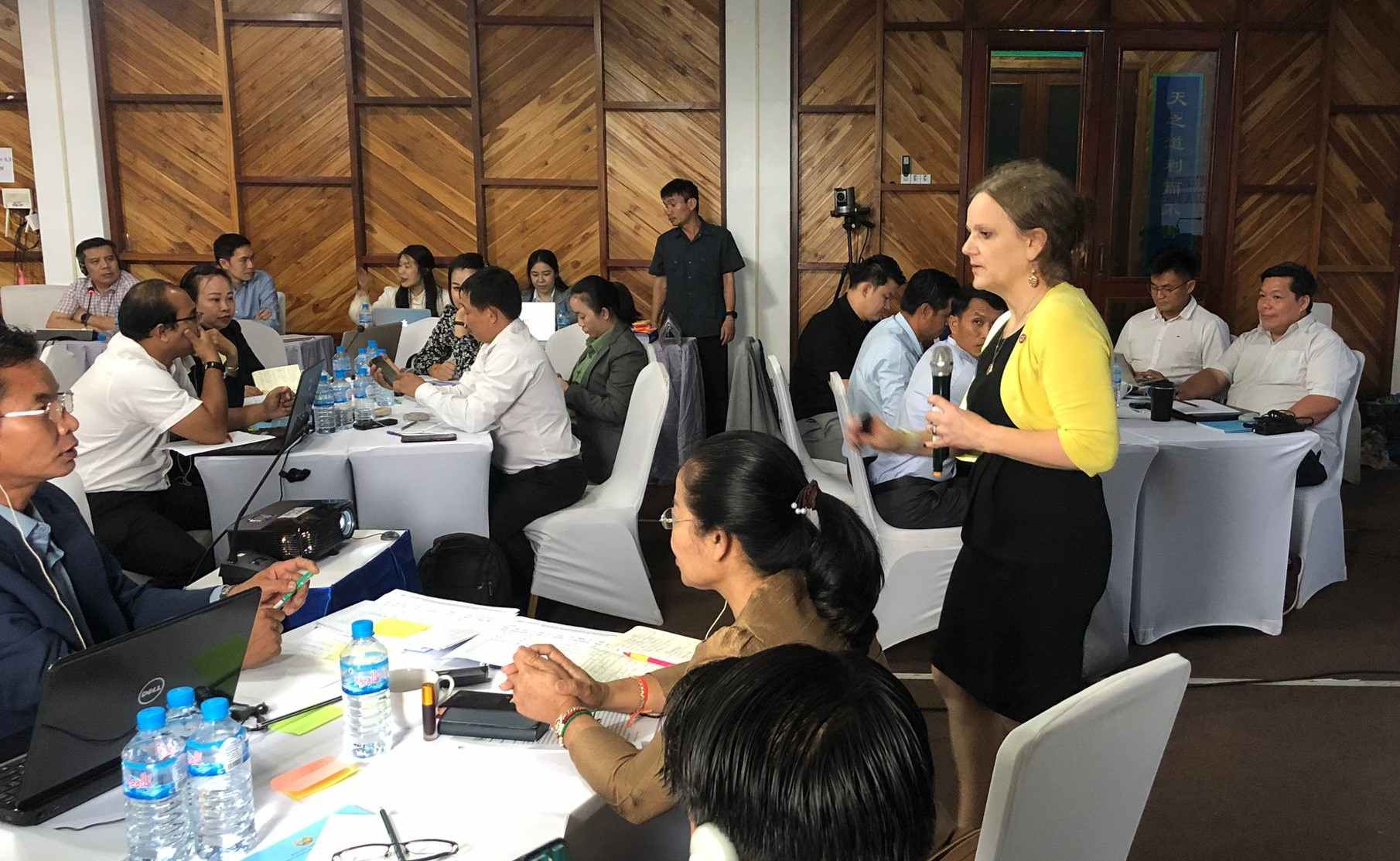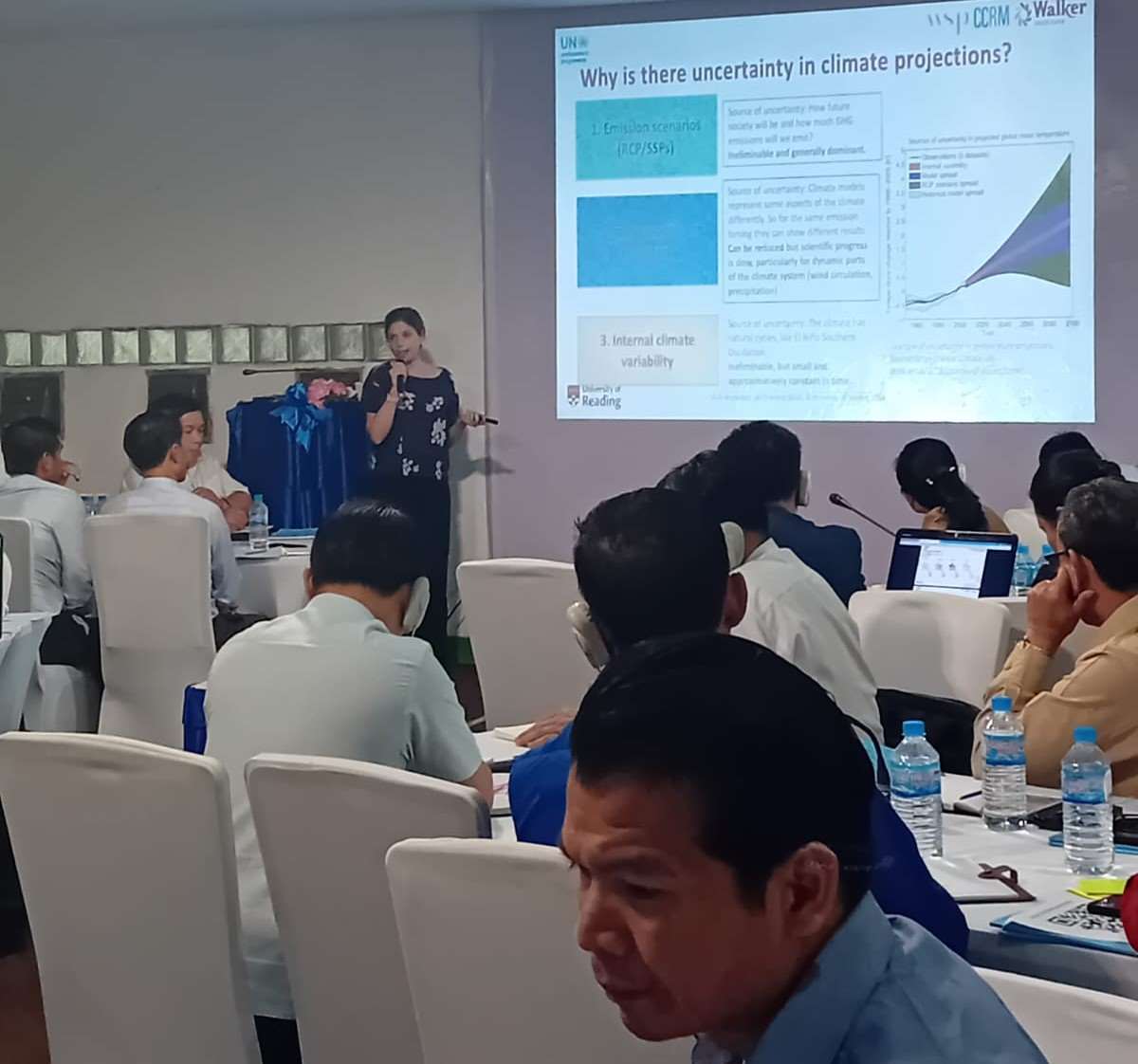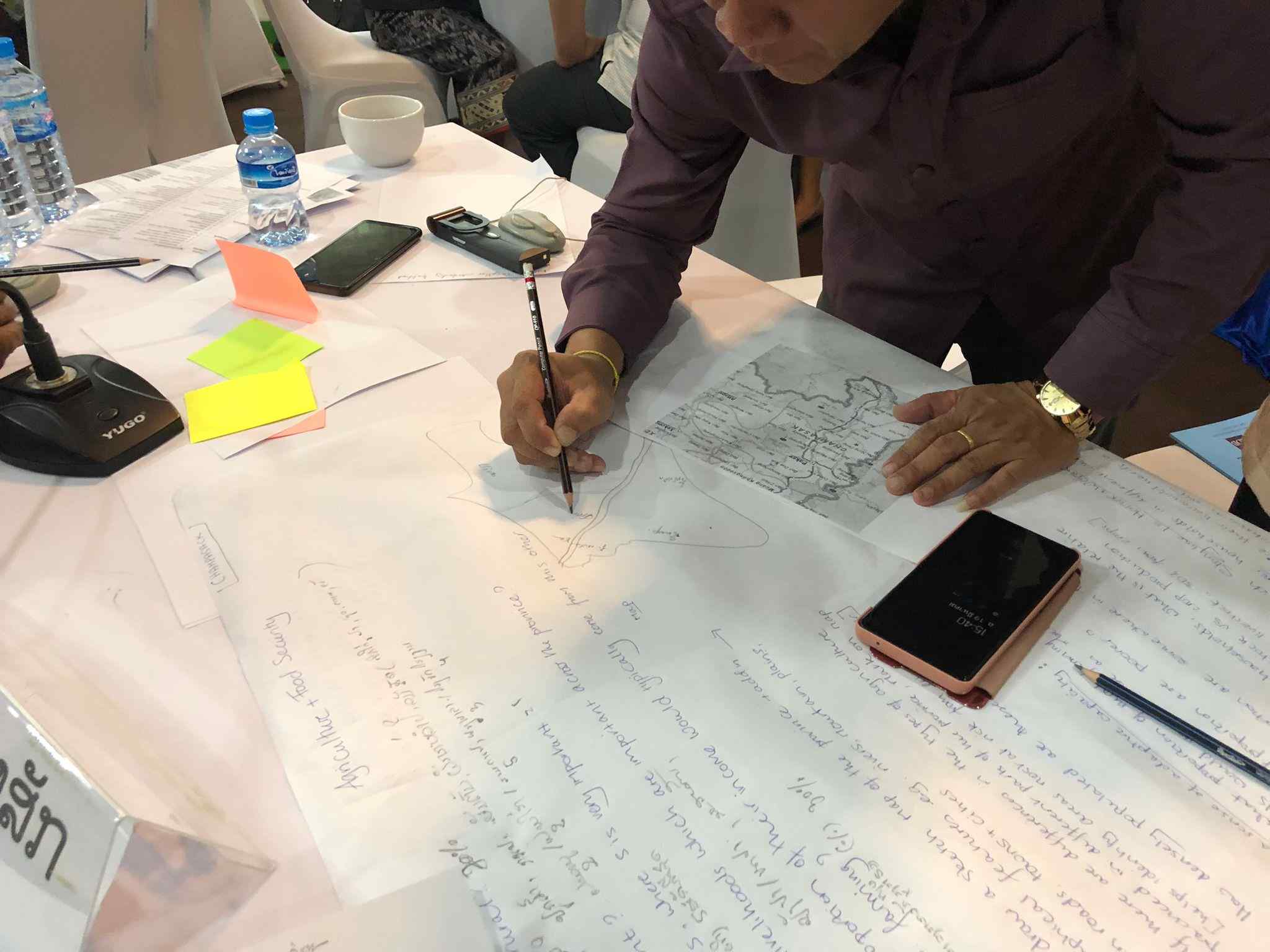Climate Adaptation in Lao PDR
Countries / Regions
Lao PDR
Partners
WSP Environment and Infrastructure Solutions UK (WSP)
Climate Change Risk Management (CCRM)
Funders
Global Environment Fund
Timescale
Project Team
Background
Lao PDR is a country exposed to worsening climate conditions resulting in more floods, storms, landslides and extreme heat. With a largely rural and lower-middle income population, 80% reliant on small scale agriculture, Lao PDR is highly vulnerable to weather and climate extremes. These impact negatively on people’s lives and livelihoods and food security, but also on people’s access to education and health services as well as vital economic activities such as tourism and mining.
Taking account of this, Lao PDR is in the process of developing its first National Adaptation Plan that will build resilience for at national and community levels. International partners are supporting this process with the Walker Institute, working together with the regional and local adaptation stakeholders to provide a climate change risk assessment and build consensus around priorities for locally-appropriate adaptation options. Key to this is finding implementable actions for and with vulnerable groups (“What is ‘My’ Climate Risk? ”) that can be integrated into the national and provincial responses.


Our Research
Our research team is developing climate risk assessments for six focus provinces in Lao PDR. A key aspect of the risk assessment is the use of climate change storylines, encompassing uncertainty in future precipitation and temperature changes. They are then combined with environmental and socio-economic stressors and vulnerabilities, to give a tangible picture of future risk. The integrated climate-environmental-socioeconomic storylines (ICICLES) for each province are the basis for studying impacts and identify adaptation options that are robust to climate uncertainty. The storyline approach to local climate risk has already been used with success in other assignments by this team, such as in regional and national work on adaptation in the Middle East.
The storylines, and the associated narratives and visuals developed by our team, are also powerful tools we use to engage with local non-technical stakeholders in the identification of impacts and adaptation priorities from their unique vantage point. The team’s mission to the country in Spring 2024 has used them successfully as framework around which to organize validation and consultation workshops with provincial government stakeholders.
Our Research
Our research team is developing climate risk assessments for six focus provinces in Lao PDR. A key aspect of the risk assessment is the use of climate change storylines, encompassing uncertainty in future precipitation and temperature changes. They are then combined with environmental and socio-economic stressors and vulnerabilities, to give a tangible picture of future risk. The integrated climate-environmental-socioeconomic storylines (ICICLES) for each province are the basis for studying impacts and identify adaptation options that are robust to climate uncertainty. The storyline approach to local climate risk has already been used with success in other assignments by this team, such as in regional and national work on adaptation in the Middle East.
The storylines, and the associated narratives and visuals developed by our team, are also powerful tools we use to engage with local non-technical stakeholders in the identification of impacts and adaptation priorities from their unique vantage point. The team’s mission to the country in Spring 2024 has used them successfully as framework around which to organize validation and consultation workshops with provincial government stakeholders.

Our Impact
Our analysis is informing the fifth version of the Lao PDR National Adaptation Plan for submission to UNFCCC. The introduction of storylines is an important innovation not yet been seen in such documents but increasingly recognised internationally (e.g. IPCC and 3rd UK Climate Change Risk Assessment).
Our capacity building work, delivered both in person in-country and via remote engagement with technical national officers, is helping to strengthen local and national capacity to take up the latest climate and adaptation science to effectively address climate change and achieve sustainable development.


